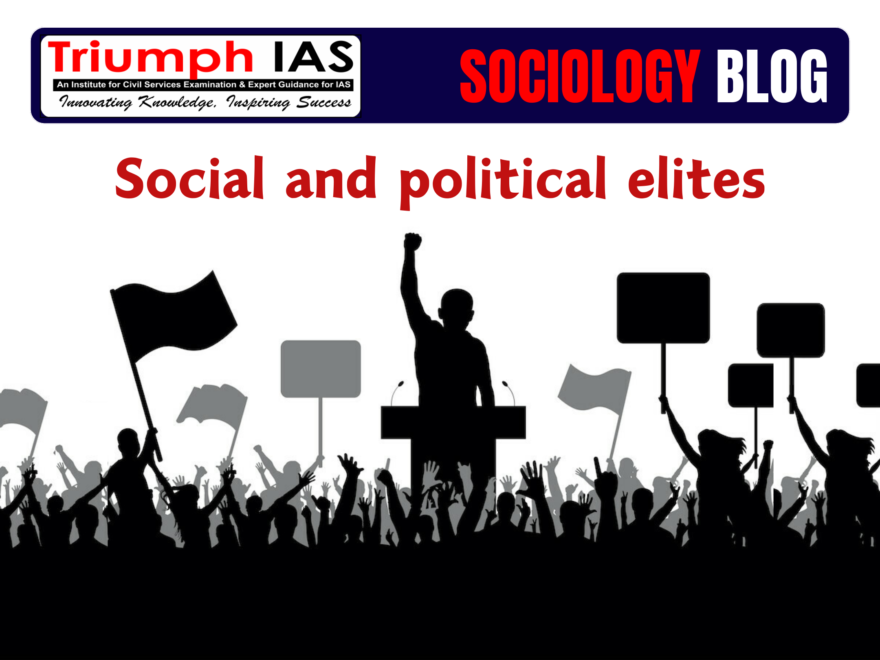| When considering the array of 51 optional subjects for the UPSC Mains Examination, Sociology consistently stands out as a top choice. Its inherent appeal lies in its accessibility and intriguing exploration of humanity and society, catering even to students from Science and Commerce backgrounds. With a well-defined UPSC sociology syllabus comprising only 13 units, Sociology can be comprehensively covered within 5 to 6 Month Comprehensive “Foundation to Finale” Classroom Programme , Many of Our Sociology Foundation Course Students have Cleared CSE 2023- Kajal Singh, First Attempt (Age 22) Mahi Sharma, First Mains (Age 23), Anand Sharma First Mains and Many Others. Previously also Many students like IAS Pradeep Singh, IAS Ashish, IPS Bindu Madhav, IPS Aparna Gautam, IPS Shahnaz Illyas got Success in CSE in First Attempt with Sociology Optional.
IAS Medha Anand, has get 310 marks in her optional subject sociology, 156 in paper – 1 & 154 marks in Paper -2 in CSE 2023. Notably, Sociology for UPSC has garnered a reputation as one of the Highest scoring optional subjects in the UPSC Main Examination, with numerous candidates consistently achieving 300+. Its popularity is evident in the fact that a significant proportion of top 100 rankers opt for Sociology as their optional subject, showcasing its high scoring potential, particularly for those not from sociology backgrounds. Moreover, relevance of Sociology Optional Syllabus for UPSC extends beyond the examination hall, enriching understanding across various aspects of life, from social and economic to political and cultural domains. In recent times, Sociology Optional has gained traction, aligning with the evolving trend of the UPSC Mains towards conceptual analysis. Unlike other optional subjects with unpredictable question patterns, Sociology offers stability and predictability, making it an attractive choice. This adaptability, coupled with its concise syllabus and relevance to both academic and social spheres, positions Sociology as the ideal optional subject for engineers as well as optional subject for commerce graduates and optional subject for science graduates seeking success in the Civil Services Examination. For those pursuing Sociology as an optional subject, accessing comprehensive Sociology optional notes and few good Sociology optional books, and previous years’ UPSC sociology optional question papers is pivotal for thorough preparation. Additionally, for aspirants seeking guidance, renowned educator Vikash Ranjan Sir at TRIUMPH IAS coaching institutes in Delhi, offer valuable support and resources. Vikash Ranjan Sir is the Best Sociology Teacher and Triumph IAS is the |
Social and political elites
Relevant for Civil Services Examination
Paper-2, Unit-13 [ Politics and Society]
Social and political elitesElite are the most influential and prestigious stratum in a society. The ‘elite’ are those persons who are recognized as outstanding leaders in given field Thus, there are political, religious, scientific, business and artistic elite.
Ram Ahuja has described elite through four features
On this basis, the term ‘political elite’ maybe defined as “a group of high stratum decision-makers in political culture or concrete political structure which monopolizes political power, influences major political policies and occupies all important posts of political command”. If we were to operationalise this term, we could say, political elite include those who are elected/ nominated to central and state legislatures, who occupy important position in national or state-level political parties, individuals who do not hold any formal positions either in the government or in political parties but are still considered as persons of great political prestige and power because they control powers exercisers e.g., Gandhi, Jaya Prakash Narayan. Elite in Post-Independence IndiaAccording to Ram Ahuja growth of political elite can be analyzed in different phases. Political elite can be analyzed by classifying growth of the political elite into five phases:
According to Ram Ahuja, in India, the govern-ing’ elite at a higher political culture base (say national level) are recruited not from the ‘non-governing’ elite at the same level but from the governing elite functioning at a lower political cultural base (say state, district or block levels). These elite of lower political base are found holding important posts in state legislatures or state political parties, etc., before becoming office-holders at the higher political base. Once these elite rise from state or district level they never go back to the ok!level but continue to function at the higher political level as long as they remain active in politics.This, however, does not mean that they cease to take interest in politics at the level from which they have moved up in the hierarchy. This means, there is no circulation but only an upward movement of the elite. However, if Pareto’s theory refers to a process in which one member of the elite group is replaced by another within the group of governing elite, we may concede that his theory does explain the political phenomenon of ‘movement of the elite’ in the context of our society also. Bottomore maintains that both conceptions are to be found in Pareto’s work, although the former predominates. According to Ahuja there are two types of movements (not circulations):
In the former, he found circulation between ‘oligarchic’ (dominant) and ‘subjacent’ (dominated) elite and between ‘radical activists and ‘passive’ activists.Activists functioning at micro-level ultimately joined the ranks of activists at the macro-level with the result that some of the activists already functioning at this level were deprived of their monopoly of power. This elite mobility may be explained in terms of,
Therefore, both individual and structural factors (caste etc.) are important in the social ascent or social The Marxian approach, which is basically non-elitist, views the relations between the elite (privileged class which commands power and wealth) and non-elite (classes which do not possess either of these) as based on conflict, in which effort is made to overthrow the ‘power elite’ to occupy its position. Ram Ahuja in his study revealed that the process of overthrowing the elite in power and succeeding them is not always based on conflict, but that it involves manipulation, toleration, accommodation, compromise and bargain too. It could, therefore, be maintained that we can neither draw from Pareto’s theory of ‘circulation of elite’, nor from Karl Marx’s theory of ‘class struggle’ to understand the changing character of political elite in India. We have to use different approach for analyzing the recruitment and the changing structure of elite in India. The End of the Blog: Social and political elitesNext Topic-Political PartiesPressure groups |
After Class Doubts Session of Students
with Vikash Ranjan Sir
 |
 |
 |
 |
 |
 |
 |
 |
 |
 |
 |
 |
Frequently Asked Questions by
UPSC Sociology Optional Students
- How to prepare for the Sociology Optional without coaching?
- Understand the syllabus thoroughly: Familiarize yourself with the entire syllabus for both Paper I and Paper II. Download the official UPSC syllabus and use it as your roadmap. You can attend Sociology Orientation Lectures by Vikash Ranjan sir on YouTube
- Build a strong foundation: Start with introductory textbooks and NCERT books to grasp core sociological concepts. You can start with Introduction to Sociology books
- Choose reliable study materials: Select high-quality textbooks, reference books, and online resources recommended by experts. You can opt for Vikash Ranjan Sir Notes too.
- Develop a study schedule: Create a realistic and consistent study schedule that allocates dedicated time for each topic. Stick to it and track your progress.
- Take notes effectively: Don’t just passively read. Summarize key points, create mind maps, or use other note-taking techniques to aid understanding and revision.
- Practice answer writing: Regularly write answers to past year question papers and model questions. Focus on clarity, structure, and critical thinking. Evaluate your answers for improvement.
- Seek guidance: You can take free Mentorship on Sociology Optional preparation by Vikash Ranjan sir. Connect with Vikash Ranjan sir (7303615329) to share strategies, ask questions, and stay motivated.
- Can I prepare for Sociology Optional without coaching?
Absolutely! Many aspirants successfully clear the exam through self-study. However coaching can provide structure and guidance, for time bound preparation.
- What are the benefits of preparing without coaching?
- Cost-effective: Coaching can be expensive, and self-study allows you to manage your resources efficiently.
- Flexibility: You can tailor your study plan to your individual needs and pace.
- Independence: You develop critical thinking and research skills, valuable assets for your career.
- What are the challenges of preparing without coaching?
- Discipline and motivation: You need self-discipline to stay on track and motivated without external guidance. Coaching and Teacher keeps you motivated.
- Access to resources: You may need to do extra research to find quality study materials and answer-writing practice opportunities. Teacher help you on this respect.
- Doubt clearing: You might lack immediate access to someone to address your doubts and questions. Teacher like Vikash Ranjan sir is accessible to his students 24×7 Mo- 7303615329
- What additional resources can help me?
- Vikash Ranjan Sir’s YouTube channel and website: Offers free Sociology lectures, study materials, and guidance.
- Triumph IAS website: Provides past year question papers, model answers, and other helpful resources.
- Public libraries and online databases: Utilize these resources for access to relevant books, journals, and academic articles.
Sociology Optional Program for
UPSC CSE 2025 & 2026
Follow us :





3 comments